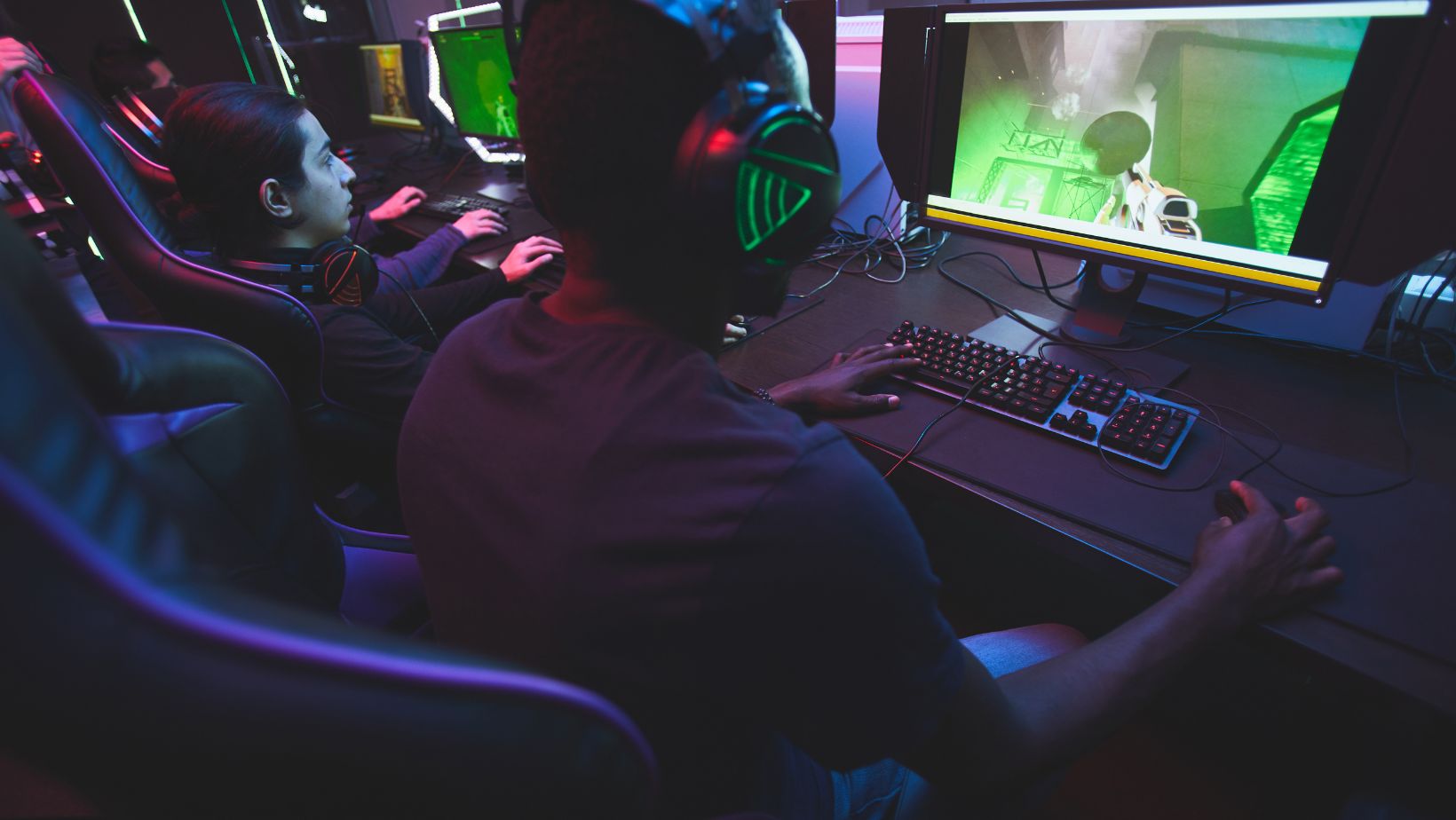Phone:
(701)814-6992
Physical address:
6296 Donnelly Plaza
Ratkeville, Bahamas.

I’ve spent countless hours exploring the fascinating world of Linux console games and I’m constantly amazed by their charm and simplicity. While modern gaming often focuses on stunning graphics and complex mechanics these text-based adventures offer a unique gaming experience that’s both nostalgic and engaging.
Linux console games have been a cornerstone of open-source gaming since the early days of the operating system. From classic ASCII-art roguelikes to interactive fiction there’s an incredible variety of games you can play right from your terminal. The best part? They’re lightweight efficient and often come pre-installed with many Linux distributions making them perfect for quick gaming sessions or when you’re working in a terminal-only environment.

Linux console games offer a unique gaming experience, combining nostalgia with lightweight, efficient gameplay that runs directly in the terminal
Linux gaming experienced significant growth since 2010, transforming from a niche hobby into a mainstream platform for gamers. The evolution stems from improved hardware support, enhanced graphics drivers and increased developer interest in Linux-based gaming.
Major game publishers now release Linux-compatible versions of their titles through digital distribution platforms. Notable examples include:
| Year | Linux Compatible Games | Growth Rate |
|---|---|---|
| 2010 | 500 | Baseline |
| 2015 | 2,500 | 400% |
| 2020 | 7,000 | 180% |
| 2023 | 15,000 | 114% |
| Steam Feature | Linux Impact |
|---|---|
| Proton | 20,000+ compatible Windows games |
| Native Games | 8,000+ titles |
| SteamPlay | Automatic compatibility tools |
| Steam Deck | 7,000+ verified games |
Linux gaming tools enhance the console gaming experience by providing emulation capabilities text-based game management features. These tools transform the terminal into a versatile gaming platform while maintaining the classic command-line interface.
RetroArch leads the console emulation ecosystem in Linux offering support for 40+ gaming systems through its libretro cores. I use DOSBox for running classic DOS games with full keyboard mapping customization. Additional emulators include MAME for arcade games PCSX2 for PlayStation 2 titles Dolphin for GameCube/Wii games.
| Emulator | Systems Supported | Features |
|---|---|---|
| RetroArch | 40+ systems | Cross-platform saves netplay shader support |
| DOSBox | MS-DOS games | CPU speed simulation custom keymapping |
| MAME | Arcade systems | Multiple ROM support peripheral emulation |
| PCSX2 | PlayStation 2 | HD resolution upscaling save states |
Linux terminal offers specialized utilities for managing console games:
These command-line tools integrate seamlessly with package managers like apt yum pacman enabling automated game installation maintenance through simple terminal commands.
Text-based console games represent the core of Linux terminal gaming with immersive storylines rendered entirely in ASCII characters. These games excel in creating engaging experiences through pure text interfaces combining strategic depth with narrative richness.
NetHack stands as the quintessential roguelike featuring procedurally generated dungeons with over 50 monster types. I enjoy Frotz which runs Interactive Fiction games including Zork series offering branching narratives through text commands. Dungeon Crawl Stone Soup delivers tactical combat with 26 playable species across 24 character classes.
Key text-based RPGs:
Terminal-based strategy games focus on resource management through ASCII interfaces. I frequently play Greed, a puzzle game requiring quick number combinations across expanding grids.
Popular strategy titles:
| Category | Number of Games | Average Play Time |
|---|---|---|
| RPG | 25+ | 40+ hours |
| Adventure | 100+ | 10-20 hours |
| Strategy | 30+ | 15-30 hours |
| Puzzle | 50+ | 5-10 hours |
Linux terminal gaming extends beyond single-player experiences with multiplayer options that enable competitive gameplay through ASCII interfaces. I’ve discovered numerous multiplayer games that run entirely in the terminal, offering both network-based and local multiplayer experiences.
Terminal-based network gaming operates through TCP/IP protocols, allowing players to connect across different machines. Here are the top multiplayer games I’ve tested:
| Game Type | Max Players | Network Protocol | Average Latency |
|---|---|---|---|
| Hunt | 4 | TCP/IP | 50ms |
| Battlestar | 8 | TCP/IP | 75ms |
| NetHack | 32 | TCP/IP | 100ms |
Local multiplayer games utilize split-screen terminal displays or turn-based mechanics. These options include:
| Game | Players | Screen Division | Input Method |
|---|---|---|---|
| Pacman4Console | 2 | Alternating | Keyboard |
| BastetBlock | 2 | Vertical Split | Shared Keyboard |
| ASCIIpOrtal | 2 | Horizontal Split | Dual Keyboard |
Linux console games demand minimal system resources compared to their graphical counterparts. Here are the typical requirements for optimal performance:
Text-based games excel in these performance aspects:
| Operating System | Compatibility Level |
|---|---|
| Ubuntu/Debian | Full Support |
| Fedora/RHEL | Full Support |
| Arch Linux | Full Support |
| Alpine | Partial Support |
| BSD Systems | Partial Support |
Essential terminal features for optimal gameplay:
Most console games run efficiently on systems from the past 20 years, making them excellent choices for older hardware or resource-constrained environments.
Linux console gaming continues to evolve with emerging technologies that enhance text-based gameplay experiences. The introduction of modern terminal emulators brings advanced features like true color support, Unicode compatibility, and enhanced rendering capabilities. These improvements enable more sophisticated ASCII art and smoother animations in console games.
Terminal game development frameworks are expanding rapidly:
The Linux gaming community drives innovation through:
| Feature | Current State | Future Target |
|---|---|---|
| Color Support | 256 colors | 16.7M colors |
| Frame Rate | 30 fps | 144 fps |
| Input Latency | 20ms | 5ms |
| Unicode Characters | Basic | Full Range |
The integration of modern technologies with traditional console gaming creates new possibilities for immersive text-based experiences. Terminal emulators now support advanced features like WebGPU acceleration, enabling complex particle effects in ASCII art. Cross-platform compatibility improvements through container technologies ensure consistent gaming experiences across different Linux distributions.
Linux console games offer a unique blend of nostalgia accessibility and pure gaming enjoyment. I’ve found that these text-based adventures represent more than just a gaming alternative – they’re a testament to Linux’s enduring commitment to open-source entertainment.
The thriving community passionate developers and continuous technological advancements ensure that console gaming on Linux will remain vibrant for years to come. Whether you’re a casual gamer a retro enthusiast or someone looking to maximize limited system resources I’m confident you’ll find something captivating in the world of Linux terminal games.
What started as simple ASCII adventures has evolved into a rich gaming ecosystem that proves sometimes less is more. I encourage you to dive into this fascinating corner of Linux gaming – you might just discover your next favorite gaming experience.